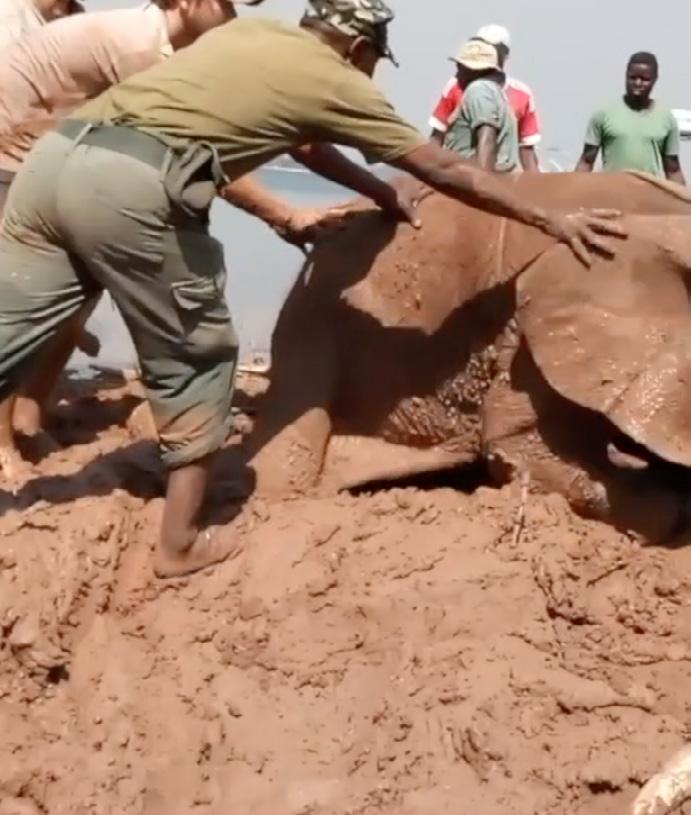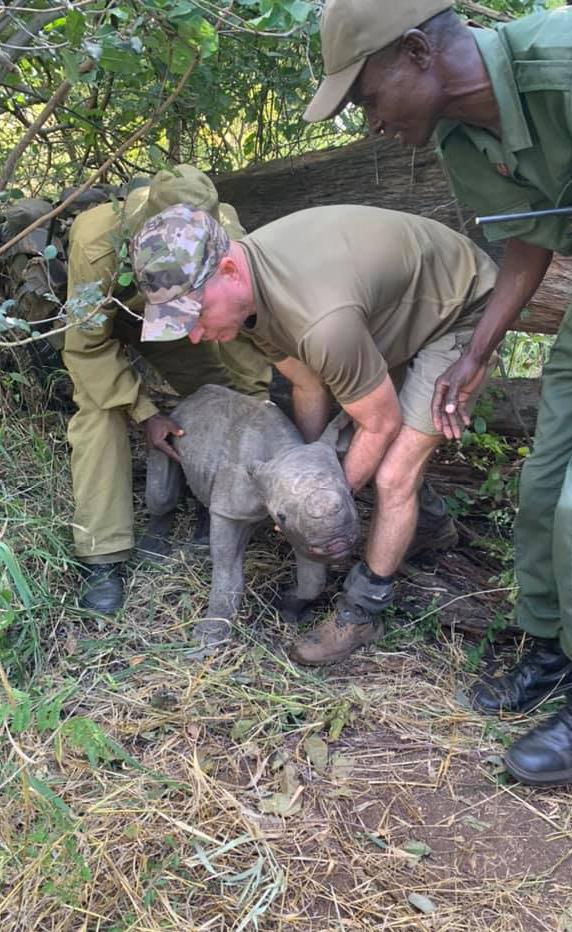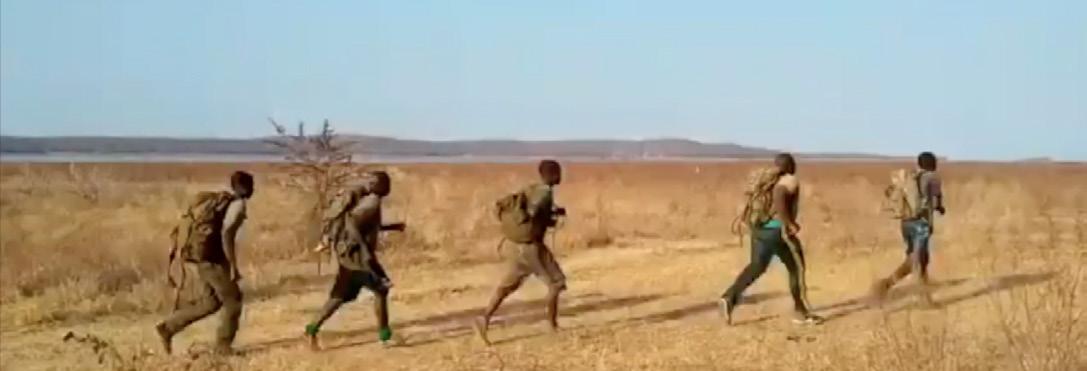
5 minute read
WILDLIFE CONSERVATION
WILDLIFE CONSERVATION IN AFRICA: CRAFTING A NEW WAY FORWARD

By Luke Brown
In the last 40-50 years, wildlife conservation in Africa has largely been left up to a relatively small grouping of people and organizations whose passion and personal experiences with wildlife have spurred them on to commit to the cause. These groups can be broadly divided into four categories: firstly, people and organizations that are based in Africa who work on the frontline for conservation. Anti-poaching outfits, wildlife veterinarians, community-wildlife outreach programmes and wildlife educational institutions fall in within this category. Secondly there are the donors, which are mainly comprised of individuals and organizations based beyond the coasts of Africa, who support the frontline efforts taking place on the ground. They feel positively compelled do this because of their deep-rooted love for Africa, either because of an epiphany they had whilst on a safari journey or because they deeply care about wildlife in general. Africa fits the bill nicely because it is blessed with a myriad of iconic wildlife.
The third category are the tourism establishments, both on the ground in Africa or in the source markets. These tourism entities support conservation when a percentage of the revenue they generate for each trip they sell gets earmarked for conservation and ends up with the first category outlined above. It is this third category that has arguably contributed the most towards conservation from the private sector perspective. In some cases, frontline conservation outfits receive as much as 90% of their funding from tourism related grants.
The fourth category are the governments and policy makers, whose influence will always be key as they essentially drive land use, and their decisions are influenced by politics and governance.
WHEN COVID-19 HIT: THE IMPACT
A tipping point came about when Covid-19 made its entry, resulting in tourism arrivals and receipts into the wildlife areas of Africa literally drying up overnight. With no signs of meaningful recovery in sight for some time to come,
When Covid-19 devastated our industry, it dawned on us that the role we had been playing to support conservation in Africa through tourism was far too fickle. We had to come up with a new way to continue our efforts and hopefully make a meaningful difference in the fight for Africa’s wildlife. – LUKE BROWN, CO-FOUNDER, ZAMBESIA CONSERVATION ALLIANCE (ZCA)
the stage for looming disaster was set because suddenly, the support wildlife conservation was getting from tourism was no longer available.
Even prior to the current global pandemic, all efforts and collective goodwill towards conservation efforts weren’t succeeding in their attempt to sufficiently halt the rate of habitat loss and animal population decline. According to the African Wildlife Foundation, more than 43% of the wild African lion population has been lost in just two decades with less than 23,00 individual African lions remaining. This decline has been attributed to both habitat loss and the illicit wildlife trade.
ACTIVATING A SOLUTION: ZAMBESIA CONSERVATION ALLIANCE IS FORMED
In March 2020, a new organization was formed, called the Zambesia Conservation Alliance (ZCA). Its founders, based in Victoria Falls, Zimbabwe, all have a background in regional tourism that stretches back more than 30 years. Covid-19 and the resulting lockdowns that left borders closed in a fight to curb the spread of infections, brought with it lots of newfound time on the hands of ZCA’s founders, who have since set out to literally ‘craft a new way forward for wildlife conservation Africa’ - a statement that has become somewhat of a mantra for them.
The new strategy is simple: to create awareness on a much bigger scale across vast cross-sections of people, thereby driving support in all forms towards habitat and wildlife conservation. Through initiating two movements, namely #WeShareAfrica and #SportForConservation the organisation has been able to attract people from all walks of life and not just those from the conventional

circles, to join the fight for Africa’s wildlife conservation.
ZCA’s gained early success towards achieving this through the Conservation Games, an event that became the catalyst for the #SportForConservation initiative. Series One of the Conservation Games was held in May and June of 2020, and saw more than 70 sports personalities participate, from 12 different disciplines, all of whom represented their countries at the highest level.

HOW THE CONSERVATION GAMES ARE PLAYED
1. Players comprising of real life current and former sportsmen were split into four teams: The Lions, the Elephants, the Leopards, and the Buffalos, each with their own captain to lead them. 2. Teams battle in head to head encounters between players in a series of battles played out virtually. 3. Each match is moderated by a ‘Match Master’ and lasts about 30 minutes during which the players compete to answer sports trivia questions relevant to the sports they play. 4. Conservation messaging was weaved into the questioning from the Match Masters with an often hilarious climax at the end of each match coming in the form of the ‘Whacky Wild’ section, where players were asked to re-enact their best version of a ‘Rhino Run and Charge’ or ‘Fish Eagle Swoop and Call’ for example. 5. Players were put into ‘virtual change rooms’ where banter was the order of the day, but on a more serious note, they also enjoyed an opportunity to interact with a different acclaimed conservation coach each week. One of our main goals of the Conservation Games was to improve the sports icon’s own knowledge of conservation so that they could take away something that resonates with them. Most importantly, the participants were able to educate their own audiences on the various topics around the subject of wildlife conservation.
CONSERVATION GAMES – SERIES TWO LOADING
Promising to be bigger, better and have an even greater impact than the first games, Zambesia Conservation Alliance is thrilled to be rolling out the next instalment of the Conservation Games. To date, several key frontline conservation organizations have benefitted through the support generated through strong audience engagement and goodwill. ZCA has since distributed resulting financial donations and offerings in kind to entities like the Victoria Falls and Bumi Hills Anti-Poaching Units. Other winning moments include ‘Rocky’ the baby Black Rhino, in the Save Valley Conservancy of Zimbabwe having received food security for his first three years of life because of Conservation Games. Aside from this event ZCA has also started Conservation Active, a second #SportForConservation initiative that allows everyone, no matter their fitness or sporting capability, to get active and support conservation at the same time.
To learn more about the evolving story of Zambesia Conservation Alliance and its various initiatives, visit: www.zambesia.com www.sportforconservation.com www.theconservationgames.com www.weshareafrica.com










